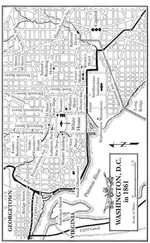John Ashton - Gossip in the First Decade of Victoria's Reign
Здесь есть возможность читать онлайн «John Ashton - Gossip in the First Decade of Victoria's Reign» — ознакомительный отрывок электронной книги совершенно бесплатно, а после прочтения отрывка купить полную версию. В некоторых случаях можно слушать аудио, скачать через торрент в формате fb2 и присутствует краткое содержание. ISBN: , Издательство: Иностранный паблик, Жанр: foreign_antique, foreign_prose, на английском языке. Описание произведения, (предисловие) а так же отзывы посетителей доступны на портале библиотеки ЛибКат.
- Название:Gossip in the First Decade of Victoria's Reign
- Автор:
- Издательство:Иностранный паблик
- Жанр:
- Год:неизвестен
- ISBN:http://www.gutenberg.org/ebooks/30665
- Рейтинг книги:3 / 5. Голосов: 1
-
Избранное:Добавить в избранное
- Отзывы:
-
Ваша оценка:
- 60
- 1
- 2
- 3
- 4
- 5
Gossip in the First Decade of Victoria's Reign: краткое содержание, описание и аннотация
Предлагаем к чтению аннотацию, описание, краткое содержание или предисловие (зависит от того, что написал сам автор книги «Gossip in the First Decade of Victoria's Reign»). Если вы не нашли необходимую информацию о книге — напишите в комментариях, мы постараемся отыскать её.
Gossip in the First Decade of Victoria's Reign — читать онлайн ознакомительный отрывок
Ниже представлен текст книги, разбитый по страницам. Система сохранения места последней прочитанной страницы, позволяет с удобством читать онлайн бесплатно книгу «Gossip in the First Decade of Victoria's Reign», без необходимости каждый раз заново искать на чём Вы остановились. Поставьте закладку, и сможете в любой момент перейти на страницу, на которой закончили чтение.
Интервал:
Закладка:
He next got mixed up in a smuggling affair, H.M. sloop Lively having captured a smuggling craft (the Admiral Hood ) off the Goodwin Sands. He attended the examination of the smugglers before the magistrates at Rochester, attired in a fancy costume, and having a small scimitar suspended from his neck, by a massive gold chain. He defended one of the men, who, despite his advocacy, was convicted. He then offered himself as a witness, swore that he had seen the whole transaction, that there was no smuggling, and that the Lively was to blame. This the prosecution could not stand; he was indicted for perjury, and was tried at Maidstone on 25 July, 1833. The sentence of the Court was imprisonment and transportation, but, being proved to be insane, this was commuted to confinement in the lunatic asylum, at Barming Heath. After about four years spent in this establishment, he was released, on security being given for his future good behaviour. He then went to live at the residence of Mr. Francis, of Fairbrook, in the neighbourhood of Boughton, near Canterbury. Owing to some misunderstanding with the family, he removed to an adjoining cottage, and, at the time of which I write, he lived at a farm-house, called Bossenden farm, occupied by a person named Culver.
The influence obtained, by this maniac, over the small farmers and peasantry in his neighbourhood, is most astonishing. They believed in all he told them; first that he should be a great chieftain in Kent, and that they should all live rent free on his land, and that if they would follow his advice, they should have good living and large estates, as he had great influence at Court, and was to sit at the Queen’s right hand, on the day of her Coronation. It would seem as if his madness, then, was personal and political, but the religious mania speedily developed itself. He told his deluded followers that they were oppressed by the laws in general, but more particularly by the new poor law; and called upon them to place themselves under his command. Nearly 100 at once joined him, and as they marched through the neighbouring parishes their numbers increased. It was then that he proclaimed his divinity – assuring them that both he and they were not only invincible, but bullet proof, and that they could never die.
The following account, which appears to me to be the most succinct of those I have seen, is from the Times of 1 June:
“On Monday (28 May) they sallied forth from the village of Boughton, where they bought bread, and proceeded to Wills’s house, near Fairbrook. A loaf was broken asunder, and placed on a pole, with a flag of white and blue, on which was a rampant lion. Thence they proceeded to Goodnestone, near Faversham, producing throughout the whole neighbourhood the greatest excitement, and adding to their numbers by the harangues occasionally delivered by this ill-fated madman. At this farm Courtenay stated that ‘he would strike the bloody blow.’ A match was then taken from a bean stack, which had been introduced by one of the party. They next proceeded to a farm at Herne Hill, where Courtenay requested the inmates to feed his friends, which request was immediately complied with. Their next visit was at Dargate Common, where Sir William, taking off his shoes, said, ‘I now stand on my own bottom.’ By Sir William’s request, his party went to prayers, and then proceeded to Bossenden farm, where they supped, and slept in the barn that night. At 3 o’clock, on Tuesday morning they left, and proceeded to Sittingbourne to breakfast, where Sir William paid 25s.; they then visited Newnham, where a similar treat was given at the ‘George.’ After visiting Eastling, Throwley, Selwich Lees and Selling, and occasionally addressing the populace, holding out to them such inducements as are usually made by persons desirous of creating a disturbance, they halted, in a chalk pit, to rest, and, on Wednesday evening, arrived at Culver’s farm, called Bossenden, close to the scene of action. Mr. Curling, having had some of his men enticed from their work, applied for a warrant for their apprehension. Mears, a constable, in company with his brother, proceeded to Culver’s house, when, on application being made for the men alluded to, Sir William immediately shot the young man who accompanied his brother in the execution of his duty. Such was the excitement, and the desperate menaces of Sir William and his party, that it became necessary for the magistrates to interfere to put a stop to the proceedings, by the capture of the ringleader of the party, from whose advice to his followers the most serious consequences were likely to ensue. At 12 o’clock, they assembled at a place called the Osier Bed, where every means were resorted to, to quell the disturbance, but without success. Sir William defied interruption to his men, and fired on the Rev. William Handley, of Herne Hill, who, with his brother, was assisting to take him into custody. They then made their way to Bossenden Wood, where they lay in ambush; but, as no means appeared to present themselves, by which the ringleader could safely be secured, he being evidently mad, and in possession of loaded firearms, threatening to shoot the first man who interfered with him, it became necessary to apply for the assistance of the 45th regiment, stationed in Canterbury barracks. On the arrival of a detachment of this regiment, they proceeded to the wood, where the party was awaiting their arrival.
“A few minutes previous to the attack, Sir William loudly halloed to his companions, supposed for the purpose of getting them prepared for the fight.
“Sir William, on perceiving his opponents, advanced with the greatest sang froid , and deliberately shot Lieutenant Bennett of the regiment, before his own men. This occasioned a return from the man covering his officer, who advanced, and shot Sir William, who fell, and died instantly. The excitement, at that period, occasioned by each party losing its commander, caused a desperate attack, which terminated in the death of ten persons, besides the brother of the constable shot in the morning, and several others seriously wounded, of some of whom little hopes are entertained of their recovery. The weapons in the hands of the followers of Sir William, were chiefly, if not altogether, heavy bludgeons.”
The following, from a correspondent, goes far to show the delusions shared by this maniac and his followers:
“The mention of this lad’s name, reminds me that his mother is said to have done more than any other person in the parish to foster and encourage the belief which she herself entertained, that Thom was our blessed Redeemer and Saviour. So steadfast was she in her belief, that when, after the battle in the wood, a neighbour went to tell her ‘the awful news,’ that Thom was killed, and her own son wounded, she would not credit the information. ‘Sir William killed!’ said she, ‘no, no, you can’t kill him; it is not the truth, it is not possible.’ The reply to her was: ‘It is the truth, and it is possible.’ She again asserted that it was not possible. Again the reply was: ‘It is possible, and it is as true as that your poor boy has got a shot in his thigh.’ Then, and not till then, would she credit that her son was hurt. But as to Sir William, she still remained incredulous, saying: ‘Mind, three days will show you and all the world what Sir William is. When that time is elapsed, you will see whether he is not that which he professes to be.’
“Of the general belief in the neighbourhood that he was the Saviour, I saw a strong proof in some writing which I found on the parsonage barn at Herne Hill. It has been there for the last ten days, and is said to be in the handwriting of Wills. On the left side of the door is written, in one long line, these words, with spelling and capitals just as I have copied them: – ‘If you newho was on earth your harts Wod turn’; then in another: ‘But dont Wate to late’; and then, in a third, ‘They how R.’ On the right side of the door is the following: ‘O that great day of gudgment, is close at hand’; in another: ‘it now peps in the dor every man according to his woks’; and in a third: ‘Our rites and liberties We Will have.’ I mentioned some of them in a former communication. At one of the places where he ordered provisions for his followers, it was in these words: ‘Feed my sheep.’ To convince his disciples of his divine commission, he is said to have pointed his pistol at the stars, and told him that he would make them fall from their spheres. He then fired at some particularly bright star; and, his pistol having been rammed down with tow steeped in oil, and sprinkled over with steel filings, produced, on being fired, certain bright sparkles of light, which he immediately said were falling stars. Again, in the early part of his progress on Monday, he went away from his followers with a man named Wills, and two of the other rioters, saying to them, ‘Do you stay here, whilst I go yonder,’ pointing to a bean stack, ‘and strike the bloody blow.’ When they arrived at the stack, to which they marched with a flag, the flag bearer laid his flag on the ground, and knelt down to pray. The others then put in, it is said, a lighted match; but Thom seized it and forbade it to burn, and the fire was not kindled. This, on their return to the company, was announced as a miracle worked by the Saviour. There is another of his acts, which he mentioned as one of the proofs of his Divinity, that I confess myself at a loss to understand. After he had fired one shot at the constable, Mears, and subsequently chopped at him with his dirk, he went into the house, seized a loaded pistol, and on coming out, said: ‘Now, am I not your Saviour?’ The words were scarcely out of his mouth, when he pulled the trigger of his pistol, and shot Mears a second time.”
Читать дальшеИнтервал:
Закладка:
Похожие книги на «Gossip in the First Decade of Victoria's Reign»
Представляем Вашему вниманию похожие книги на «Gossip in the First Decade of Victoria's Reign» списком для выбора. Мы отобрали схожую по названию и смыслу литературу в надежде предоставить читателям больше вариантов отыскать новые, интересные, ещё непрочитанные произведения.
Обсуждение, отзывы о книге «Gossip in the First Decade of Victoria's Reign» и просто собственные мнения читателей. Оставьте ваши комментарии, напишите, что Вы думаете о произведении, его смысле или главных героях. Укажите что конкретно понравилось, а что нет, и почему Вы так считаете.












